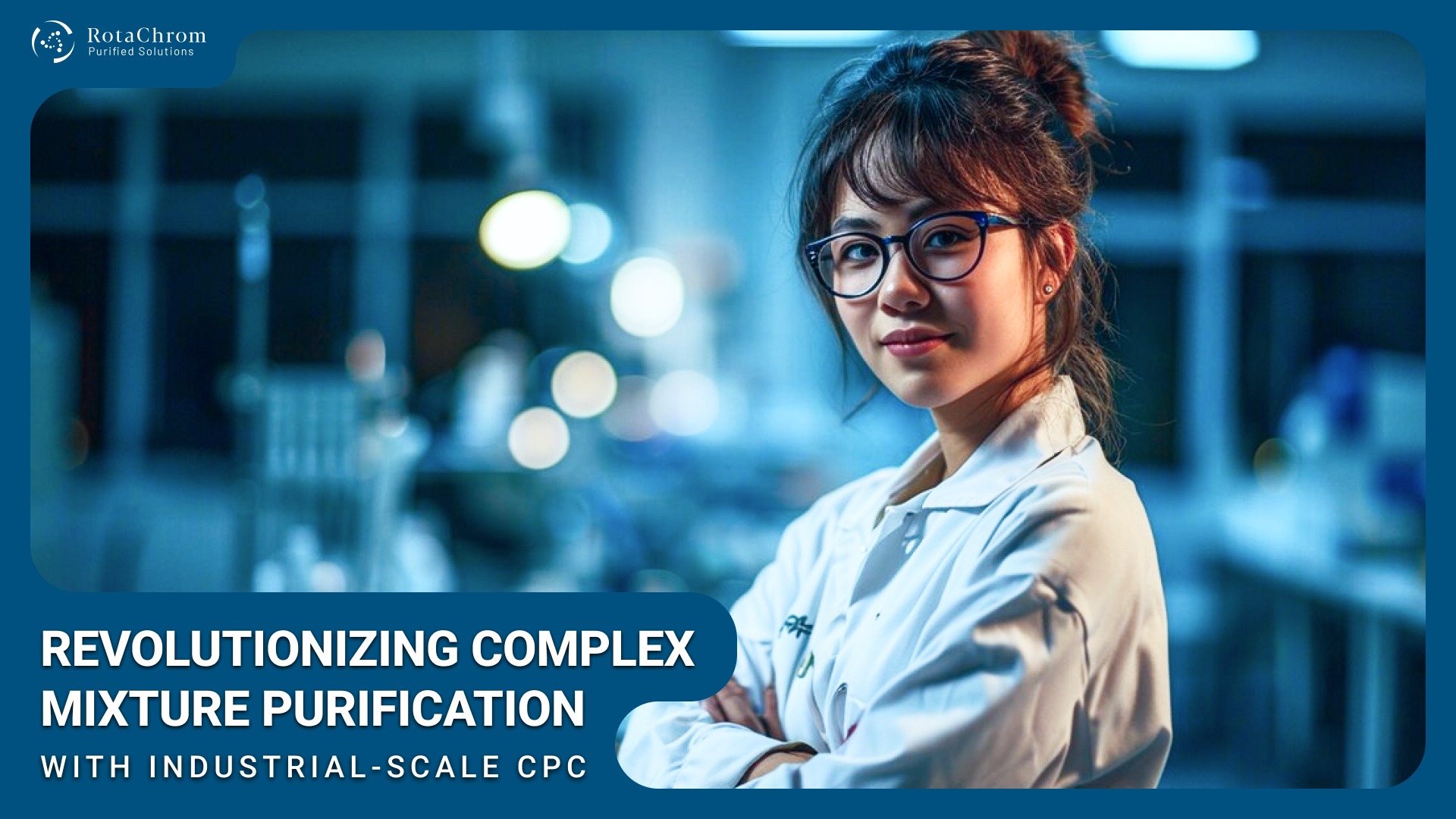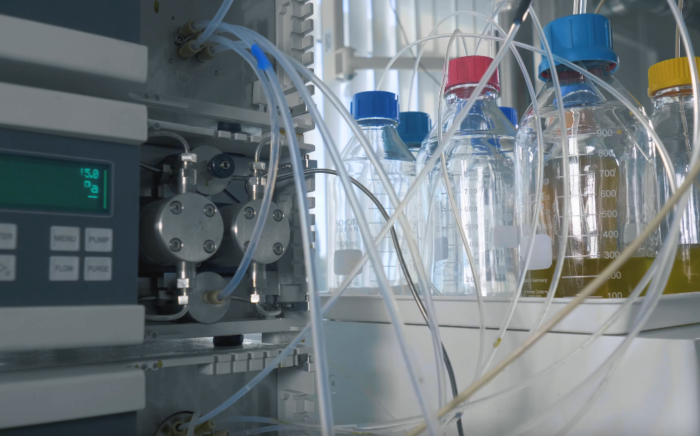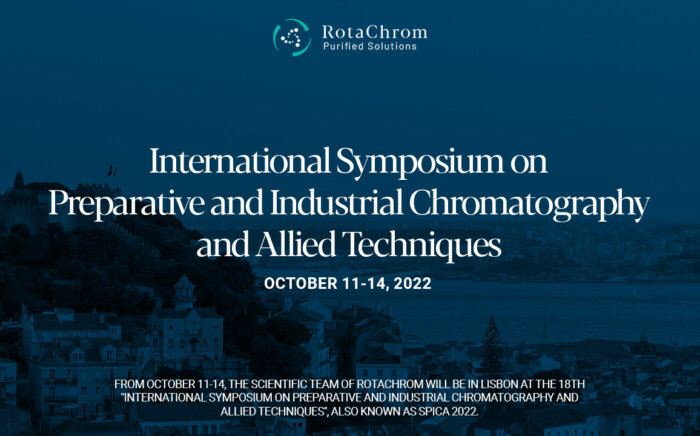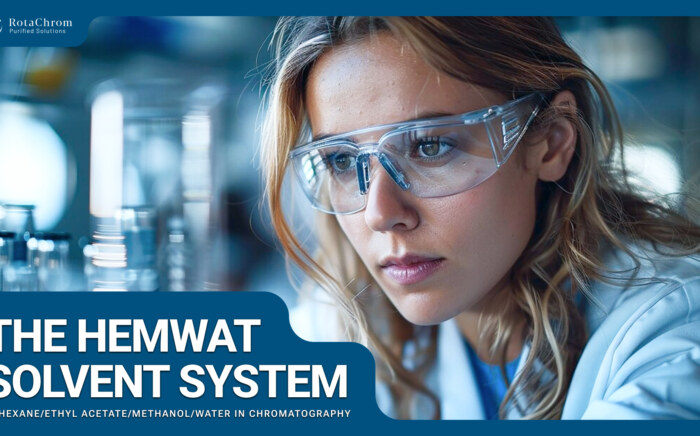Advancing Separation Science: CPC Device Installation and Its Impact
NewsThe manufacturing and purification of small molecule Active Pharmaceutical Ingredients (APIs) is a multifaceted process requiring specialized facilities, regulatory expertise, and scientific acumen. To navigate this complex landscape, pharmaceutical innovators often collaborate with Contract Development and Manufacturing Organizations (CDMOs). Among the myriad techniques for producing high-purity pharmaceutical products, preparative chromatography stands out as a reliable method for separating, purifying, and isolating substances from intricate mixtures. This article explores the pivotal role of APIs, the significance of CDMOs, and the groundbreaking approach offered by RotaChrom in API manufacturing through Industrial-Scale Centrifugal Partition Chromatography (CPC).
API Purification: A Complex Endeavor
Active Pharmaceutical Ingredients (APIs) are the core biologically active components in medicinal products, driving the desired therapeutic effects. APIs can be derived from diverse sources and produced through various methods, including chemical synthesis and fermentation. The stringent regulation of API purification and production underscores its critical role in ensuring the safety and efficacy of final medicinal products. Factors such as quality control, yield, cost, and scalability further contribute to the complexity of API manufacturing.
The Role of CDMOs
Contract Development and Manufacturing Organizations (CDMOs) play a pivotal role in the pharmaceutical landscape by offering a spectrum of services, including research and development, process optimization, analytical testing, quality control, regulatory affairs, and manufacturing. Pharmaceutical companies leverage CDMOs to access expertise and resources they may lack internally or to outsource specific aspects of the development and manufacturing process. CDMOs guide companies through the entire development process, from early-stage research to commercial manufacturing.
Revolutionizing API Purification with RotaChrom’s CPC
RotaChrom introduces a groundbreaking method for preparative purification: Industrial-Scale Centrifugal Partition Chromatography (CPC). Unlike traditional methods relying on solid stationary phases, RotaChrom’s technology adopts a liquid-liquid approach for precise molecular separation. The system boasts superior yield and purity, reduces costs, and simplifies downstream method development for diverse purification tasks.
Key Features of RotaChrom’s CPC Technology
- Elimination of silica gel dependency: RotaChrom’s CPC technology operates without the need for silica gel, a departure from traditional methods. This elimination of solid supports reduces waste and costs associated with solid phase disposal and preparation.
- Liquid-liquid chromatography (LLC): In liquid-liquid chromatography, the system utilizes two immiscible liquid phases. This approach ensures that solutes partition based on their affinity between the two liquid phases, providing a highly selective separation process.
- High sample volume loading: The strong centrifugal force in CPC ensures solutes can access the entire volume of the liquid stationary phase, allowing for high sample volumes to be processed efficiently. This high loadability is crucial for industrial-scale operations.
- Complete sample recovery: Liquid-liquid chromatography eliminates the issue of irreversible adsorption, enabling complete sample recovery. This feature is particularly beneficial for recovering valuable APIs without significant loss.
- Wide application spectrum: RotaChrom’s CPC system adapts seamlessly to various applications, spanning pharmaceuticals, food and beverage, natural extracts, cosmetics, and fragrances. This versatility makes it a valuable tool across multiple industries.
- Expanded product portfolio: RotaChrom offers a range of products from benchtop devices for research and development, through pilot-scale systems for process optimization, to continuous manufacturing and industrial-scale instruments for full-scale production.
Conclusion
In the dynamic landscape of API manufacturing, RotaChrom’s Liquid-Liquid Chromatography approach represents a paradigm shift. By replacing traditional solid stationary phases with a liquid-liquid system, this innovative technology not only enhances precision in molecular separation but also addresses challenges related to yield, purity, and downstream development. As the pharmaceutical industry seeks more efficient and cost-effective solutions, RotaChrom’s CPC system emerges as a powerful tool, revolutionizing the purification process across diverse applications.
Further Resources
To learn more about CPC and chromatography in general, click any of the links below.



